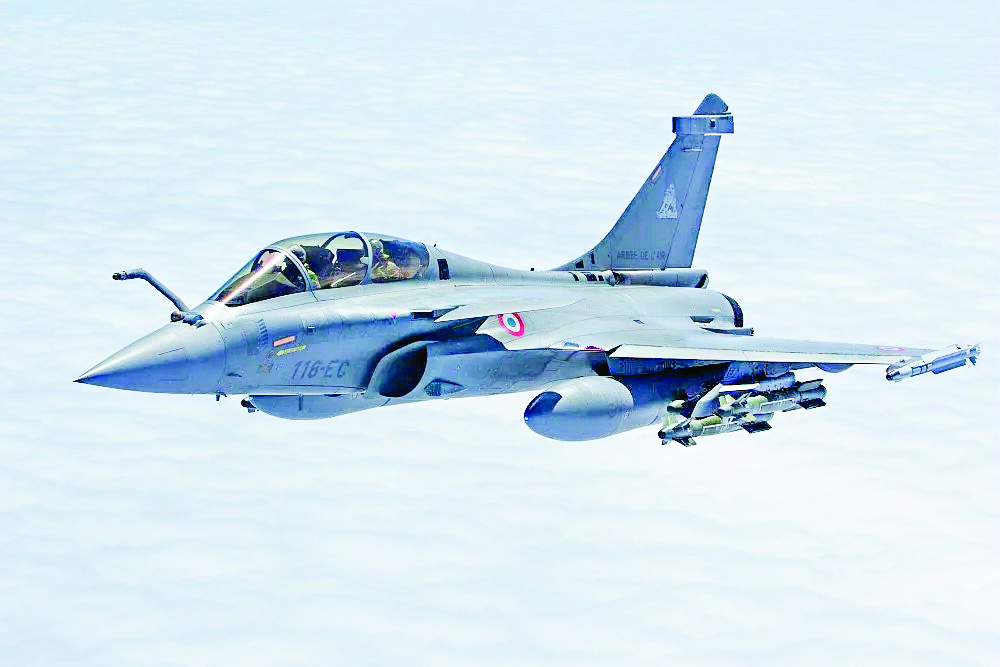France aims to finalise Rafale deal with Bangladesh as discussions gain momentum under Caretaker PM Mohammad Yunus.
New Delhi: France is hoping that the new dispensation in Bangladesh will finalise a long-awaited deal to purchase Rafale fighter jets as part of a broader effort to modernise the Bangladesh Air Force (BAF), according to sources familiar with the matter. The discussions have gained momentum as the caretaker Prime Minister Mohammad Yunus has been described as more receptive to France’s offer compared to his predecessor Sheikh Hasina.
In March 2017, Bangladesh’s Directorate General of Defence Purchases (DGDP) issued a tender for eight new multi-role combat aircraft, with an option for four more in the second phase, to bolster the BAF’s capabilities. The objective was to enhance the country’s aerial defence and enable anti-surface, maritime, and offensive counter-air operations. The Bangladeshi government had previously committed in December 2016 to finalising this purchase during the 2016-2017 fiscal year. Apart from the French Rafale, the European-built Eurofighter Typhoon has also been in the running for this almost €2.5 billion contract.
As part of the competition for this tender, defence companies are not only highlighting the strengths of their own products, but also pointing out perceived shortcomings in their competitors’ offerings. In this context, a narrative has emerged suggesting that since India operates Rafale fighter jets, Dhaka should consider not opting for Rafale. Those supporting this narrative say that Dhaka should diversify its defence equipment sources to avoid dependency on the same suppliers as neighbouring countries. Secondly, opting for the same aircraft could be seen as aligning too closely with India’s defence strategy. Thirdly, since India already operates Rafale jets, Bangladesh might lose any tactical advantage as India would have in-depth knowledge of the capabilities and potential weaknesses of the Rafale, which could put Bangladesh at a disadvantage in any future conflict or diplomatic standoff.
The Sunday Guardian reached out to Dassault Aviation for a response on these developments. None was received till the story went to press. Similar email sent to the Bangladesh Cabinet Secretariat headed by Yunus too did not generate any response.
As per the BAF’s specifications, the fighters must be newly built, with production beginning no earlier than the signing year of the contract. The aircraft should have twin engines, each delivering a minimum of 5,500 kg in dry thrust and over 8,000 kg with afterburner. They must feature at least eight hardpoints and a payload capacity of no less than 5,000 kg. In terms of avionics, the BAF wants the fighters to be equipped with an electronically-scanned array radar capable of a range of 150 km for air-to-air missions and 50 km for air-to-surface operations. The package must also include an integrated electronic warfare and electronic countermeasures suite, an infrared search and track (IRST) system with a 50 km tracking range, a helmet-mounted display and sight system, a head-up display, and a modern glass cockpit. The BAF has sought a comprehensive package deal that includes not just the aircraft but also maintenance, a training package, and a set of air-to-air and air-to-surface munitions. The delivery is expected in two phases, with the first batch of four aircraft to be followed by the second batch 18-24 months later.
In September 2023, French President Emmanuel Macron visited Dhaka at the invitation of Prime Minister Sheikh Hasina. The visit, which followed Macron’s attendance at the G-20 Summit in New Delhi, was the first official visit by a French president to Bangladesh in 33 years. One primary reason for the visit of Marcon was to push for the induction of Rafale into BAF. However, he received no concrete answer.

